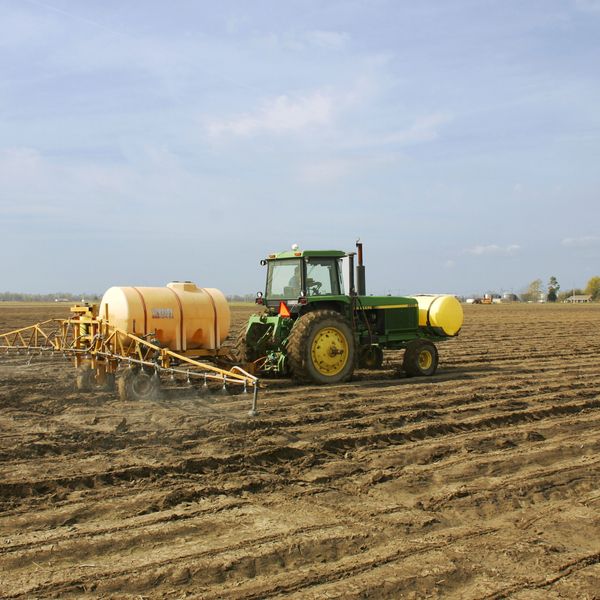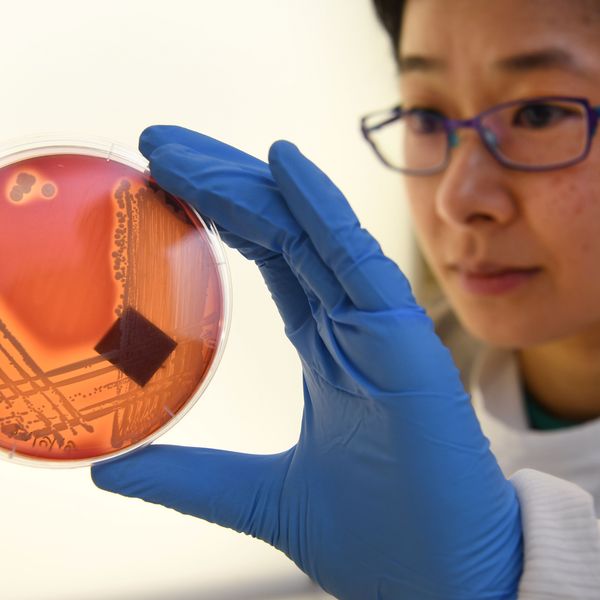In yet another setback for Monsanto and other agri-chemical companies, EU member states on Monday refused to back a limited extension of the herbicide glyphosate's use, prolonging a continent-wide stalemate over the controversial weed killer.
Reuters reports:
The EU executive - after failing to win support in two meetings earlier this year for a proposal to renew the license for glyphosate for up to 15 years - had offered a 12 to 18 month extension to allow time for further scientific study.
It hopes a study by the European Chemicals Agency (ECHA) will allay health concerns, as citizen and environmental groups pile pressure on governments to take a precautionary approach.
The compromise proposal failed to win the qualified majority needed for adoption, an EU official said, adding the European Commission will discuss the issue at a meeting on Tuesday.
The Financial Times reported the news under the headline, "Brussels Threatens to Eradicate Weed Killer Sold by Monsanto."
Indeed, Deutsche Welle noted: "If no decision is taken on the license's renewal by June 30, products containing glyphosate like Monsanto's Roundup and other weed killers will have to be pulled from European shelves."
The latest development comes just weeks after the United Nation's Food and Agriculture Organization and the World Health Organization (WHO) released a joint summary report concluding that glyphosate was "unlikely to pose a carcinogenic risk to humans from exposure through the diet"--an assertion decried at the time as "a blatantly political and ham-fisted attempt to influence the EU decision" on the chemical.
The WHO's International Agency for Research on Cancer had previously stated that glyphosate is "probably carcinogenic in humans."
While public health and social justice advocates cautiously celebrated Monday's vote as paving the way for a possible Roundup recall, they criticized the EU Commission for its seemingly indefatigable effort to keep glyphosate on the shelves.
"Despite millions of people across Europe demanding an outright ban, and the European Parliament calling for severe restrictions, the Commission continues to push through its proposal to renew glyphosate's license," said Global Justice Now food campaigner Aisha Dodwell.
"In the face of this public revolt over glyphosate," she continued, "the Commission has now decided to take the decision to an appeals panel, meaning once again we will have been left waiting to hear if Europe's public will continue to be exposed to toxic chemicals."
Added Greenpeace UK food policy director Franziska Achterberg, "Extending the glyphosate licence would be like smelling gas and refusing to evacuate to check for a leak. As long as there is no meaningful EU-wide restriction on glyphosate use, we will continue to live in a world that is awash in a weed killer which is a likely cause of cancer."
After last month's delay, Global Justice Now food and agribusiness campaigner Heidi Chow argued that the ongoing deadlock over glyphosate was "the result of two powerful and opposing forces."
"One on the one hand," she explained at the time, "you have an enormously influential agribusiness lobby, made up of companies like Monsanto whose Roundup weed killer contains glyphosate and accounts for almost a third of their total earnings."
Chow continued: "And on the other side you have over a million citizens across the EU who have signed a petition saying they don't want toxic chemicals like glyphosate to be so widely used when there are such enormous risks over being carcinogenic. The EU keeps delaying the glyphosate decision, but it will need to soon decide whether its interests are aligned with public health or corporate profits."


